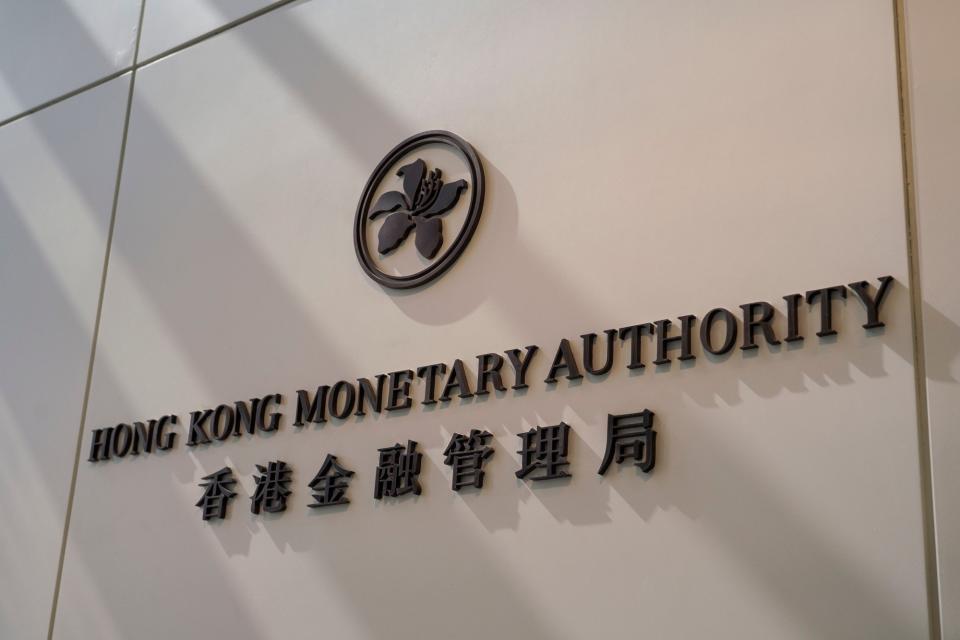Hong Kong banks to reap rewards of high interest rates until late next year, KPMG says
Hong Kong's banks saw moderate growth to their balance sheets last year as the high interest rate environment continued to boost profitability, according to a KPMG report on Wednesday.
The banking sector saw a significant rise in overall operating profit in 2023, and as interest rates are expected to remain relatively high and decrease gradually in the next year or so, banks will continue to reap rewards, the consultancy said.
"As the higher rates persist generally through the second half, that's going to continue to be positive for banks in Hong Kong in terms of their ability to make money on that net interest margin," said Paul McSheaffrey, senior banking partner at KPMG China.
Do you have questions about the biggest topics and trends from around the world? Get the answers with SCMP Knowledge, our new platform of curated content with explainers, FAQs, analyses and infographics brought to you by our award-winning team.
The total assets of all licensed banks in the city last year rose by 2.7 per cent to HK$23 trillion (US$2.94 trillion), according to the KPMG report. Net interest margin rose by 30 basis points to 1.84 per cent, while operating profit before impairment charges increased by 34.7 per cent to HK$295 billion.
The Hong Kong government and regulator's push to digitalise and develop fintech capabilities is also giving the city a major boost and will increase its attractiveness to banking customers, according to KPMG.
"Hong Kong is leading the charge globally on the exploration of central bank digital currencies [CBDCs]," said McSheaffrey, noting that they had the potential to be used in the future for cross border payments.
It would be a huge benefit to Hong Kong and boost the city's attractiveness if it can facilitate faster and seamless digital payment systems across multiple jurisdictions in Asia and the rest of the world, he said.
The Hong Kong Monetary Authority (HKMA) has undertaken a slew of initiatives to future-proof the financial sector. These include m-Bridge, a joint project with the central banks of China, Thailand, the United Arab Emirates, and the Bank of International Settlements to test the large-scale use of blockchain to settle international payments. The HKMA is also testing a retail CBDC - the e-HKD - and issued a consultation paper on stablecoins.

The Hong Kong Monetary Authority has undertaken a slew of initiatives to future-proof the financial sector. Photo: Shutterstock alt=The Hong Kong Monetary Authority has undertaken a slew of initiatives to future-proof the financial sector. Photo: Shutterstock>
The KPMG report also touched on the emergence of generative artificial intelligence (GenAI) and its applications, with McSheaffrey noting the technology "will likely take some time before it reaches its full potential".
Banks are likely to take their time over the adoption of GenAI because of a number of factors: data readiness, unclear return on investment, potential risks and uncertain productivity gains, according to the report.
Meanwhile, the performance of Hong Kong's banking sector this year will continue to be affected by uncertainties associated with US monetary policy, the global growth outlook and geopolitical tensions, the report said.
It will also be closely linked with the health of China's economy, which remains challenged by subdued consumer and business confidence and a weak real estate sector. Beijing's policy measures will be crucial in stabilising the market and limiting defaults among borrowers.
Another concern for banks will be their exposure to the city's small and medium-sized enterprises (SMEs), which are facing rising costs and slower economic activity. A robust rebound in Hong Kong's economy will contribute to improved credit conditions, particularly for SMEs, the report said.
This article originally appeared in the South China Morning Post (SCMP), the most authoritative voice reporting on China and Asia for more than a century. For more SCMP stories, please explore the SCMP app or visit the SCMP's Facebook and Twitter pages. Copyright © 2024 South China Morning Post Publishers Ltd. All rights reserved.
Copyright (c) 2024. South China Morning Post Publishers Ltd. All rights reserved.

 Yahoo Finance
Yahoo Finance 